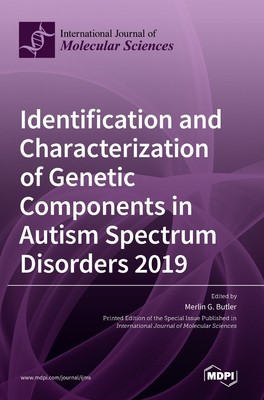
- We will send in 10–14 business days.
- Publisher: MDPI AG
- ISBN-10: 3036536094
- ISBN-13: 9783036536095
- Format: 17 x 24.4 x 2.1 cm, hardcover
- Language: English
- SAVE -10% with code: EXTRA
Identification and Characterization of Genetic Components in Autism Spectrum Disorders 2019 (e-book) (used book) | bookbook.eu
Reviews
Description
The Identification of the Genetic Components of Autism Spectrum Disorders 2019 will serve as a resource for laboratory and clinical scientists as well as translational-based researchers, primary healthcare providers or physicians, psychologists/psychiatrists, neurologists, developmental pediatricians, clinical geneticists, and other healthcare providers, teachers, caregivers and students involved in autism spectrum disorders (ASD) with the goal to translate information directly to the clinic, education and home setting. Other professionals, students and families might find this textbook of value based on better awareness, causes and understanding of genetic components leading to autism and open avenues for treatment. Genetics play a role with up to 90% of autism, with over 800 currently recognized genes contributing to causes, clinical presentation, treatment, and counseling of family members. This textbook includes 13 chapters divided into three sections (clinical, genetics, other) written by experts in the field dedicated to research and clinical care, description, treatment and generating relevant reviews for ASD and related disorders impacting gene expression, profiling, and pathways. Identification of potential risk factors will be discussed, including obesity, microbiota, malignancy, and the immune system, as well as their direct or indirect contribution to ASD treatment and causation.
EXTRA 10 % discount with code: EXTRA
The promotion ends in 10d.13:25:34
The discount code is valid when purchasing from 10 €. Discounts do not stack.
- Publisher: MDPI AG
- ISBN-10: 3036536094
- ISBN-13: 9783036536095
- Format: 17 x 24.4 x 2.1 cm, hardcover
- Language: English English
The Identification of the Genetic Components of Autism Spectrum Disorders 2019 will serve as a resource for laboratory and clinical scientists as well as translational-based researchers, primary healthcare providers or physicians, psychologists/psychiatrists, neurologists, developmental pediatricians, clinical geneticists, and other healthcare providers, teachers, caregivers and students involved in autism spectrum disorders (ASD) with the goal to translate information directly to the clinic, education and home setting. Other professionals, students and families might find this textbook of value based on better awareness, causes and understanding of genetic components leading to autism and open avenues for treatment. Genetics play a role with up to 90% of autism, with over 800 currently recognized genes contributing to causes, clinical presentation, treatment, and counseling of family members. This textbook includes 13 chapters divided into three sections (clinical, genetics, other) written by experts in the field dedicated to research and clinical care, description, treatment and generating relevant reviews for ASD and related disorders impacting gene expression, profiling, and pathways. Identification of potential risk factors will be discussed, including obesity, microbiota, malignancy, and the immune system, as well as their direct or indirect contribution to ASD treatment and causation.


Reviews